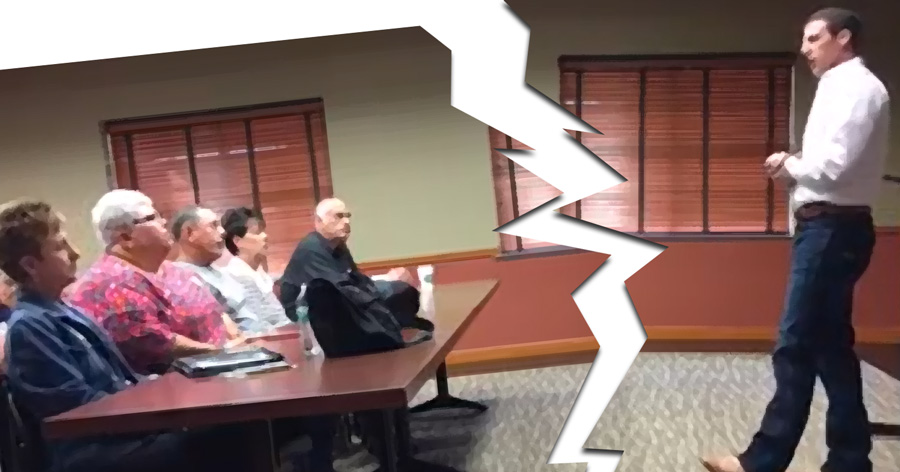The folks in Congress represent ‘We, the People’ . . . well, theoretically, at least. They’re supposed to work for us. We are their bosses. We pay their salary.
But not U.S. Rep. Markwayne Mullin, the third-term Republican from the rural Second District of Oklahoma. At two recent town hall meetings, the former professional mixed martial arts fighter responded to comments that the people pay his salary and health insurance with a sort of verbal karate-chop.*
“You say you pay for me to do this. Bullcrap,” he aggressively retorted. “I pay for myself. I paid enough taxes before I got there and continue to through my company to pay my own salary. This is a service. No one here pays me to go.”
Mullin’s taxpayer-funded PR professional, Amy Lawrence, was nice enough to explain the prickly, arrogant ranting of her boss, noting that, “Like all business owners, Congressman Mullin pays his taxes, which contribute to congressional salaries.”
Which means — yes sirree! — that of course his constituents pay his salary, when they also “contribute” their taxes. The fact that Rep. Mullin pays taxes, too, doesn’t change that fact.
And, though Mullin claims being a member of Congress is not how he makes “his living,” he does, nonetheless, deposit into his bank account a not inconsequential $174,000 a year in congressional salary.
Moreover, as a member of Congress, Mullin also gets to flout the Obamacare law with a special health insurance deal.
A town hall set for Tahlequah was canceled . . . for security reasons.
This is Common Sense. I’m Paul Jacob.
* His comments in Jay, Oklahoma, are available here; his Okemah comments, here. An entire hour video of his Okemah remarks are here (the portion about his pay begins at 24:48).











